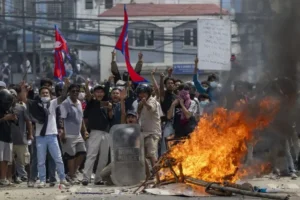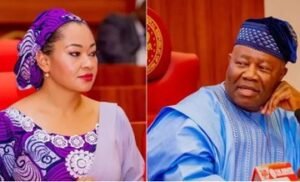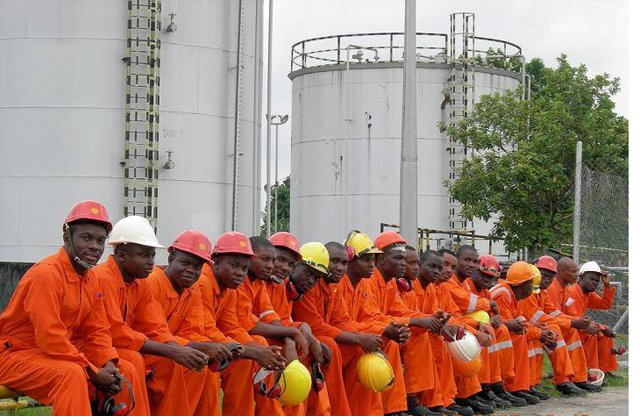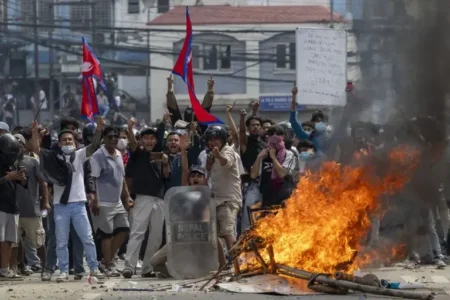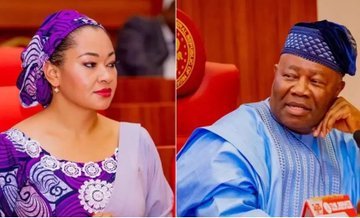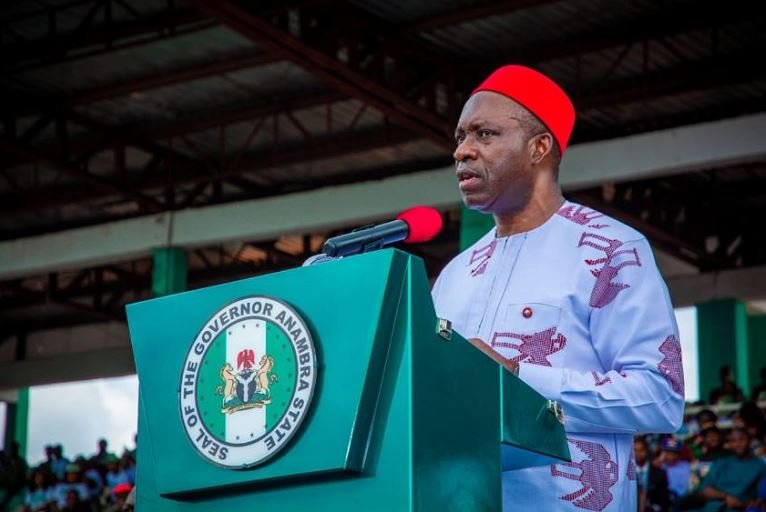Reconciliatory talks between representatives of Dangote Petroleum Refinery and the leadership of the National Union of Petroleum and Natural Gas Workers (NUPENG) dragged on for several hours on Monday night despite the role played by the Federal Government through the Ministry of Labour, Employment, and Productivity for reconciliation.
This came as officials of NUPENG stopped fuel loading activities across petroleum depots nationwide on Monday as they kicked against Dangote Petroleum Refinery’s alleged ban on workers’ unionism.
The discussion, which included all sides and was held in the Ministry of Labour’s conference room, lasted several hours despite preparations for all parties to quickly sign a Memorandum of Understanding to terminate the protracted crisis.
The meeting was attended by NUPENG’s national executives as well as officials from the Nigeria Labour Congress and the Trade Union Congress.
Ogbugo Ukoha, Executive Director of Distribution Systems, Storage, and Retailing Infrastructure of the Nigerian Midstream and Downstream Petroleum Regulatory Authority, was also there, as were executives from the Dangote Group and MRS Petroleum.
The meeting was co-chaired by Minister of Labour Muhammed Dingyadi and Minister of State for Labour Nkeiru Onyejeocha.
The meeting, which had been scheduled to begin at 10:00 a.m. on Monday, was delayed and did not begin until after 5 p.m. due to the tardiness of union representatives.
According to sources at the conference, following the labor ministry’s mediator role, resolutions of the Memorandum of Understanding were read for all parties to agree on and sign.
However, disputes among Dangote Group officials over some of the resolutions prompted more discussions. As of 10:15 p.m. on Monday, parties were still discussing a long-term solution to the situation.
It was gathered that petroleum tanker drivers on Monday made real their threat to shun fuel loading due to the crisis between them and the Dangote refinery as a result of the unionization of tanker drivers. This was despite an appeal by the federal government that they shelve the plan.
NUPENG members also closed gas stations across the country. The Aradel refinery in Obele, Port Harcourt, was closed. The Kwale Hydrocarbon Facility in Delta State was closed.
NUPENG announced on Friday that it will stop loading fuel this week due to claims that the Dangote refinery planned to prohibit drivers recruited for its 4,000 trucks from joining the union. NUPENG President Williams Akporeha revealed on Sunday that the Federal Government had contacted the union about the need to avoid the strike. He insisted, however, that the industrial action will continue.
As of Monday morning, Chronicle NG gathered that there was full compliance with the directive that no driver should lift fuel. Checks by one of our correspondents confirmed that activities at petroleum depots were paralyzed across the country. NUPENG officials visited the depots to enforce compliance.
Drivers stopped their trucks at several depots around the country, particularly in Lagos and Warri, Delta State, to await the next direction for petroleum lifting. Our source claims that NUPENG authorities have closed some terminals to prevent vehicles from moving. Williams Akporeha, the National President of NUPENG, told our correspondent that there was “100 percent compliance across the nation.”
Some union members accused Dangote and MRS of preparing to take over their jobs by hiring new drivers.
The gates at Aiteo, RainOil, Shell+, First Royal, and MAO, as well as Hensmor, One Terminals, Africa Terminals, Integrated Oil and Gas, and other Lagos depots, were locked as workers stayed away to support the walkout. A&E, Matrix, Parker AY Shafa, and other Warri depots all joined the strike.
On Monday, NUPENG officials shut down gas stations throughout Sokoto, the state capital. Union officials were seen blocking multiple petrol stations and halting the flow of petroleum trucks on critical arteries like Gusau Road and other key highways that connect Sokoto to neighboring states.
Eyewitnesses said that officials planted leaves and barricades at selected spots, blocking fuel delivery and distribution around the city. NUPENG delegates stated that at midnight, their national officials instructed them to impose the shutdown.
“We are only carrying out orders,” an official said. Some residents expressed shock and frustration over the sudden development. A commercial tricycle operator, Bello Musa, said, “I came out early to work and found that most filling stations are closed. If this continues, transport fares will go up, and it will affect everybody.”
The action sparked fears of gasoline scarcity, with motorists and commuters concerned about potential increases in transit charges and larger economic consequences if the blockade continued.
Though Nigerians were unaffected by the strike on Monday, stakeholders were concerned that the continued closure of the depots would result in fuel scarcity.
